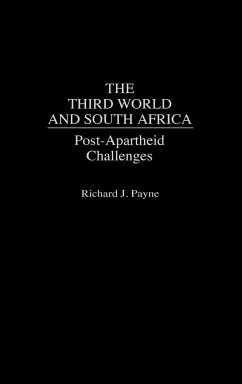Converging revolutionary changes in Europe, the former Soviet Union, and in southern Africa radically transformed the international political environment in which Third World countries had formulated and implemented their policies toward South Africa. These changes also focused attention on the need for democratic reforms in Sub-Saharan Africa and elsewhere in the Third World. By removing apartheid's legal underpinning, the South African government made a major and largely unanticipated step toward creating a relatively egalitarian and nonracial society. Dismantling the more intractable social and economic components of a legal system of racial domination, into which South Africans have been socialized, is clearly a more herculean endeavor. Payne analyzes Third World relations with South Africa: the common and divergent interests among the countries that opposed apartheid, conflict and cooperation between the Third World and South Africa, and the implications of changes in South Africa for the Third World in general and Sub-Saharan Africa in particular. He brings into sharper focus contradictions between the declaratory policies against apartheid expressed by Third World states and their actual practices. Payne examines how national interests, leaders' personalities, policymaking processes, and problems within specific countries influence Third World foreign policies in general and toward South Africa specifically. As such, the work will be invaluable to students and scholars involved with African studies, Third World politics, and international relations.
Hinweis: Dieser Artikel kann nur an eine deutsche Lieferadresse ausgeliefert werden.
Hinweis: Dieser Artikel kann nur an eine deutsche Lieferadresse ausgeliefert werden.








